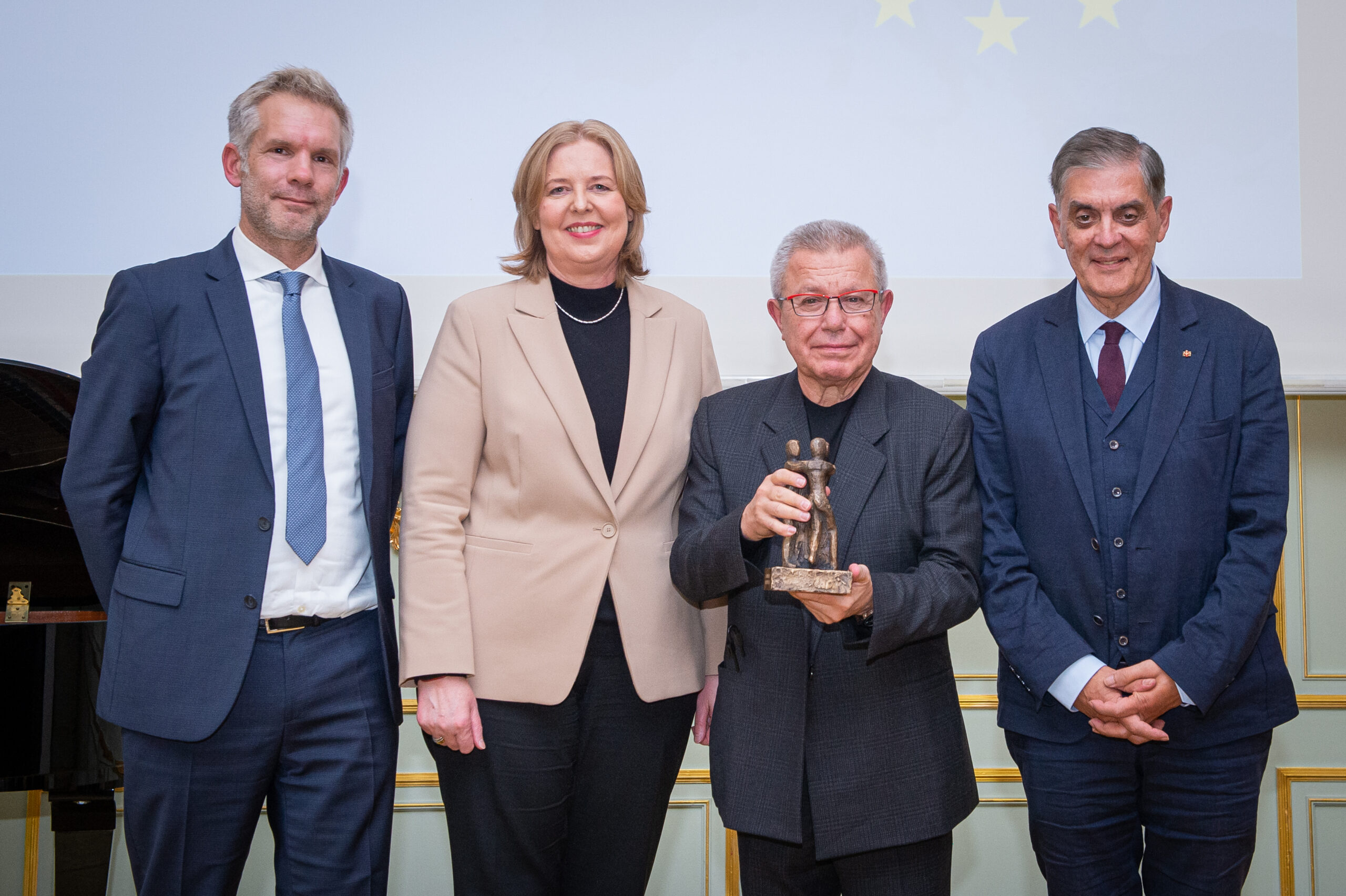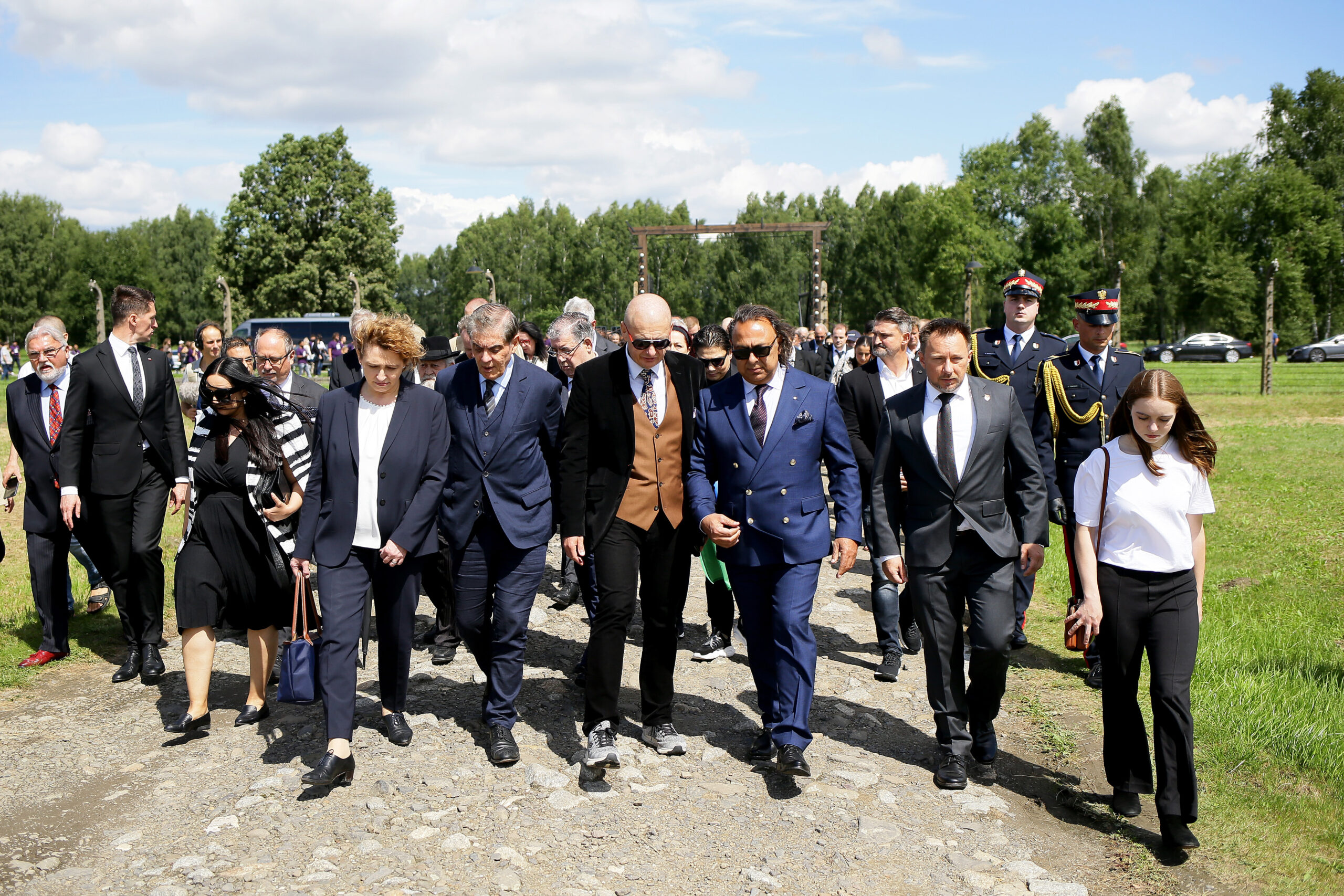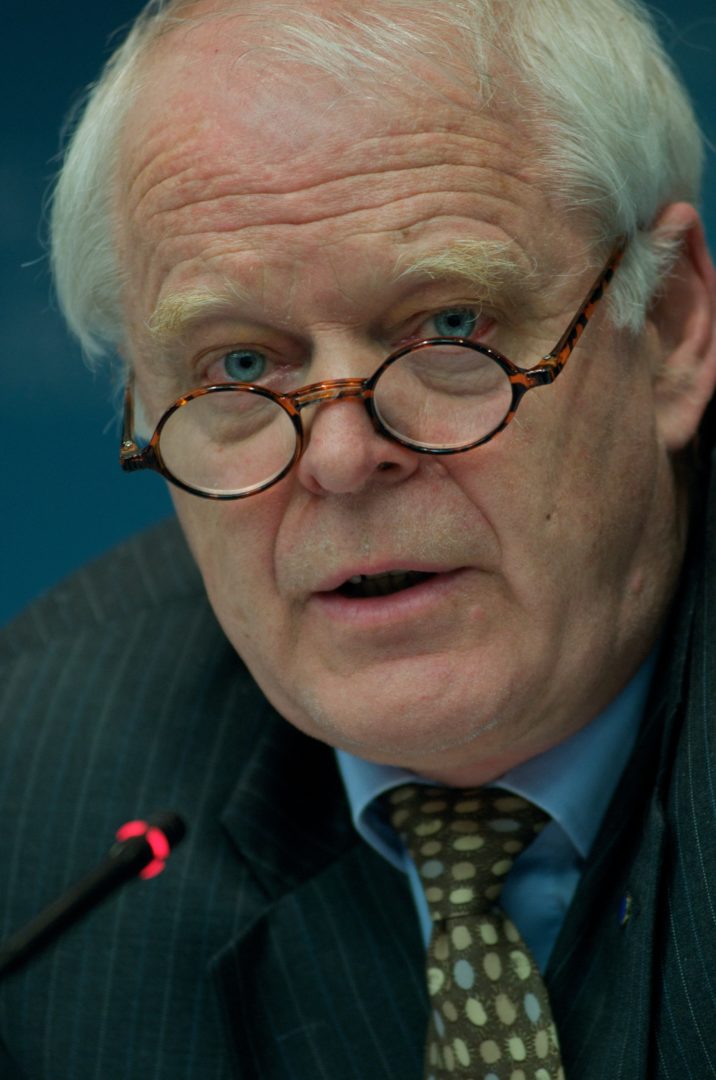Thomas Hammarberg
Strengthening the rights of Sinti and Roma in Europe was one of Thomas Hammarberg’s (born 1942) main focal points of work. According to Hammarberg, here is a ‘shameful deficiency’. In a variety of speeches and statements, he advocated an improvement of the living conditions of the biggest minority in Europe and denounced contemporary Antigypsyism.
In addition, detailed country reports on the situation of Sinti and Roma in individual European countries were produced under the aegis of Hammarberg. In one report, he openly criticized the Italian authorities for their treatment of the members of the Sinti and Roma minority. In an open letter to Federal Chancellor Angela Merkel in 2009, Hammarberg appealed in particular not to deport any Roma to Kosovo, as they were subject to political persecution and had to live in camps. A year later, he repeated this ‘urgent plea’ in a letter to Federal Interior Minister Thomas de Mazière. A special commission set up by Hammarberg had classified the Roma camps in Kosovo as ‘a humanitarian catastrophe’. He also strongly condemned the French mass deportation of Roma in 2010.
In May 2010 and in February 2012, he published extensive position papers on the human rights situation of the Sinti and Roma. In them, he stressed the need for a consistent and comprehensive program to improve the situation of the Roma. According to Hammarberg, the current rhetoric concerning Roma is frighteningly similar to the one used by the Nazis before the genocide. With his clear words and his commitment to the rights of the Sinti and Roma, Hammarberg distinctly influenced the European discourse.
Special Prize Winner George Lacatus
George Lacatus studied pedagogy, journalism and English at the University of Bukarest. After many years of experience at major Romanian daily newspapers, a radio station and as an investigative journalist at România liberă, one of the highest-circulation daily newspapers in Romania, he now works for Evenimentul Zilei, a transnational newspaper based in Bukarest. In 2007, he received the Print Media Award of the Romanian Press Club for an article on the illegal activities of the national lottery.
In 2009, together with four other Roma journalists, Lacatus founded the Roma Journalists Association, of which he has been president ever since. The aim of the RJA is to eliminate stereotypes and resentment towards Roma in the Romanian media and to raise awareness and promote sensitization of journalists on Roma issues. The work of the RJA consists of three main areas: First, it reports racist media coverage to the Romanian National Council for Combating Discrimination and the National Broadcasting Council; secondly, it organizes journalism courses for Roma high school students; and thirdly, it is a cooperation partner of Roma NGOs at press conferences and training programs for journalists.






